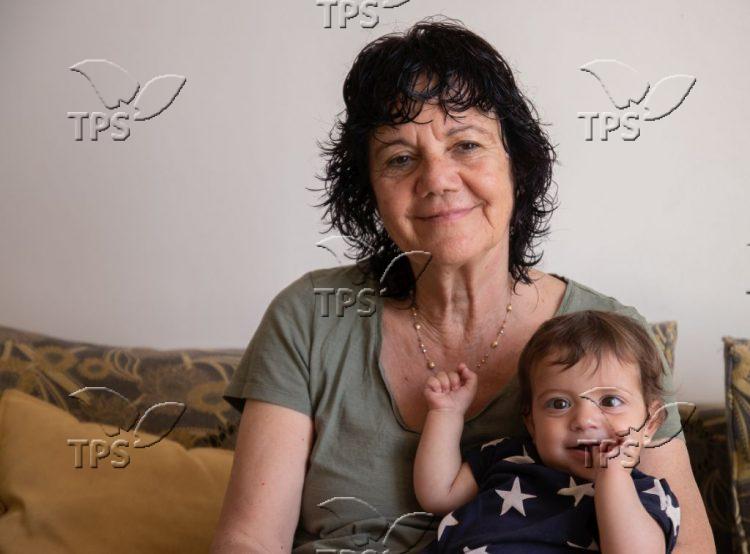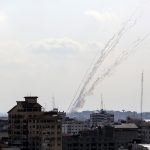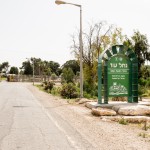Israeli Displaced by Rockets: ‘It’s Not Easy to Be a Refugee In Your Own Country’
Jerusalem, 11 May, 2023 (TPS-IL) -- “It’s not easy to be a refugee in your own country,” said Rinat Galili as she sat in the lobby of Netanya’s Ramada Hotel.
“Even though we’re in very convenient hotels with a lot of facilities, it’s still a forced vacation and we don’t like it. I like to choose my own vacation. I don’t like to be deported from my home,” she told the Tazpit Press Service.
Galili, a 64-year-old therapist and social worker was forced to evacuate her home in Kibbutz Nirim this week as Palestinian Islamic Jihad fired hundreds of rockets at Israel. The kibbutz, with a community of around 500, is just two kilometers from the Gaza border.
The hotel is nice, she says, but Galili didn’t get to choose where to go to wait out the Gaza conflict, now in its third day. The communities relocate together.
“Nirim, as a kibbutz, we don’t decide where to go. It’s the Ministry of Defense. The ministry has a special department which decides which kibbutz will go where, according to the size of the population and other parameters they have,” she told TPS.
She was referring to the Defense Ministry’s National Emergency Authority. Thousands of Israelis have been evacuated to safer areas around the country.
Around 200 residents of Nirim, including all the families with children, are together in Netanya. But another 100-150 people stayed behind to take care of various kibbutz chores. Cows still need to be milked, agricultural fields still require basic care, and the kibbutz still needs to be guarded.
There’s no way to predict how long the “forced vacation” will last.
“I expect to be away from home as long as the operation lasts, till after the ceasefire starts,” Galili told TPS.
Galili moved to the Nirim in 1984 when she got married. Her husband was born on the kibbutz, today is probably best known for the organically grown vegetables it exports to Europe.
Galili told TPS that the decision to evacuate wasn’t difficult because she relocated during previous military operations since 2008 during a Gaza war Israelis still refer to as “Operation Cast Lead.”
“I was the secretary of the kibbutz. At the time, we understood that the first time, that we can’t leave all the population under fire for more than a few hours. It’s not good for the older people and it’s not good for the children,” she said.
“So we ourselves searched for a kibbutz that was willing to host us. We managed to evacuate most of the families to that kibbutz. From that time, we learned from all the operations that came afterwards that it’s not good for the populations to stay in the kibbutz during the missile attacks. That’s why, if I can, I try to evacuate each time there is a long operation.”
Over the years, kibbutz residents learned to cope with sporadic rocket fire. In Nirim, when the sirens signal another rocket launch, the reaction time is measured in seconds not minutes.
“Once, my car was damaged by shrapnel. Once my bike. My windows. So it’s not very safe. You never know,” Galili told TPS.
“A lot of times, I found myself on the ground because I was walking from one place to the other or stopping my car in the middle of the road because there was a fired rocket. I had to lie down on the road with my hands on my head.”
Asked whether she has any concerns that the Palestinians will fire rockets that can reach Netanya, said the thought crossed her mind.
“I’m not very worried because I don’t think they ever reached Netanya, so I think we’re in a safe place,” she said, adding, “But I must admit I’ve checked the safe room here in the hotel just in case it will happen.”







